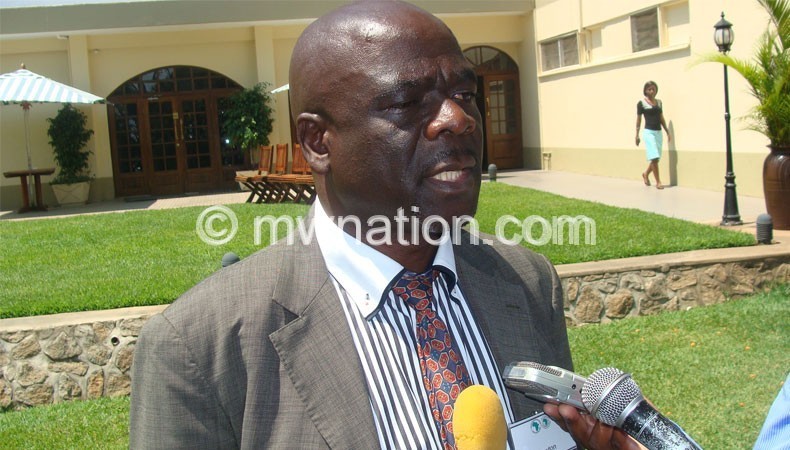MCCCI bemoans taxes on raw materials
Malawi Confederation of Chambers of Commerce and Industry (MCCCI) has pleaded with government to revise downwards taxes on imported raw materials for manufacturing to save companies from shutting down.
The chamber said continued shrinking of the Malawi economy has resulted in companies closing or scaling down production as they can barely afford exorbitant taxes they are required to pay for raw materials to stay in business.

This month, one of the country’s chain stores Peoples Trading Centre (PTC) Limited, which trades as People, closed 20 of its 85 shops nationwide due to poor returns.
In an exclusive interview on Monday, MCCCI president Newton Kambala said exorbitant taxes government is pushing down the throats of companies on imported raw materials are prohibitive to the industry’s growth.
“The high taxes are unfriendly to growth because they result into high production costs, which also lead to high prices for the finished product. It also frustrates efforts to increase production for the export market.
“We are lobbying with government to work on this tax regime so that companies pay less on raw materials. This is also one reason why you see companies closing because they have no financial muscle to keep on importing raw materials,” Kambala said in an exclusive interview.
He explained that highly priced produce is a burden to Malawians whose income has stagnated for years despite cost of living going up.
Kambala added: “When companies are closing, the economy is badly affected. You have seen it at the moment that our economy is shrinking, and failure by companies to export is not helping it to get back to its feet.”
The MCCCI president further said the chamber wants government to apply “right taxes” on imported products so that locally produced goods are made competitive.
He also accused government of contributing to the industry’s downfall, through its failure to pay back debts for goods and services rendered by the private sector.
MCCCI said government owes the private sector about K155 billion in arrears.
But Minister of Finance, Economic Planning and Development, Goodall Gondwe in a recent interview, said government has started paying back the debt in phases.
He said government set aside K50 billion to settle private sector arrears and so far it has issued zero coupon promissory notes to restructure the debt.
According to Gondwe’s budget statement, the first bunch of the promissory notes is expected to mature this year, the next in 2016/2017 financial year whilst the last will be in 2017/18.
Speaking during the groundbreaking ceremony of Malawi Bureau of Standards (MBS) Laboratory Complex in Blantyre on Monday, chief technical advisor for the United Nations Industrial Development Organisation (Unido), Francois Denner, whose organisation is providing technical and financial support towards the laboratory, challenged Malawi to increase its presence on the international market.
“Therefore, it is a non-negotiable requirement that Malawi has to transform the National Quality Infrastructure to retain and expand its access to global markets. This requires upgrading policies, regulations and conformity assessment bodies,” he advised.
When commissioning Balaka Cotton Ginnery on January 18, President Peter Mutharika admitted that industrialisation and trade remain key to Malawi’s economic growth.





